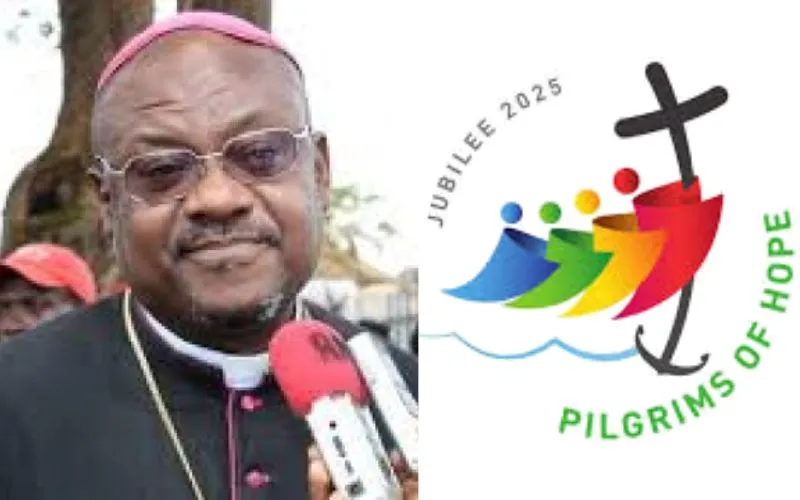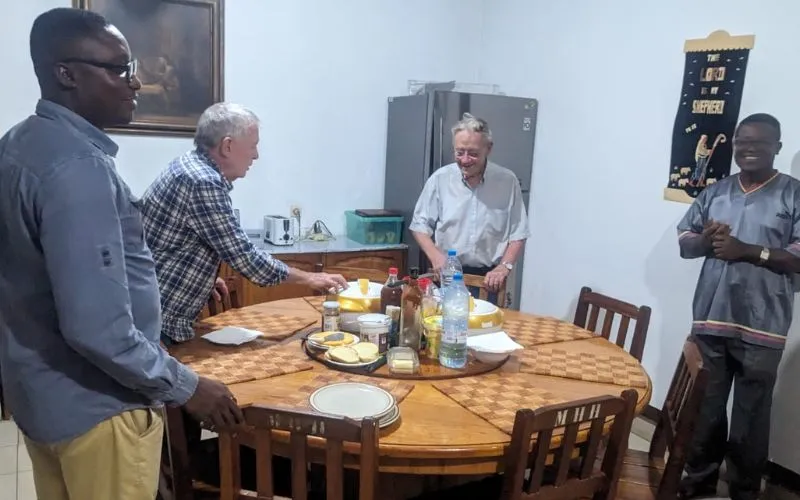“In order to experience the Jubilee fully, we must organize ourselves properly. In our Diocese, we have two Holy Doors – one in Soyo and one in Mbanza Congo, which is the Diocesan seat. Our apostolic groups must structure their activities accordingly,” Bishop Kiaziku said.
He noted that while large gatherings may not always be feasible, parishes and local communities should find ways to organize discussions, meetings, and catechetical sessions to educate the faithful about the significance of the Jubilee.
“Many people hear the word ‘Jubilee’ but do not fully understand what it means. We need to organize lectures, workshops, and formation sessions to raise awareness among the faithful,” he said.
Bishop Kiaziku went on to outline other initiatives, including pilgrimages to basilicas, weekend retreats, and local events tailored to different groups in his Episcopal See.
“We will organize pilgrimages, weekend retreats, and spiritual gatherings, depending on the needs of each group. For those residing in the cities where the two Holy Doors are located, there will be designated times for communal prayer, reconciliation, and spiritual renewal,” he explained.
(Story continues below)
The Catholic Church leader underscored the need for moments of spiritual transformation during the Jubilee, pointing out that “special” jubilee activities are to organized by the Clergy and members of Institutes of Consecrated Life and Societies of Apostolic Life (ICLSAL).
“These moments must lead to a radical change in our lives. For instance, the Jubilee of Religious and the Jubilee of Priests are important occasions for reflection and renewal. We must take this opportunity to come together as groups and discern how best to live out this grace-filled period,” he said.
Bishop Kiaziku said he was confident that with good planning and active participation in planned activities, the 2025 Jubilee Year in Mbanza Congo Diocese will yield spiritual fruits.
“We still have time to make up for any lost opportunities and to live this Jubilee as it should be lived,” he said, and called upon the Clergy, women and men Religious, and Laity to take on “a greater role” in educating the people of God about the 2025 Jubilee Year so that it becomes “a time of renewal and deepened faith.”
“As long as people remain uninformed, they may hear about the Jubilee but not know how to respond to it. This is why Priests, women and men Religious, and lay leaders must take up the task of sensitization, guiding the faithful to fully embrace this moment of grace; this Kairos, as it is called in Greek.”
Pope Francis announced the start of a Year of Prayer on 21 January 2024 in preparation for the Church’s 2025 Jubilee Year, the second in his Pontificate after the Extraordinary Jubilee of Mercy in 2015.
He said that the 2025 Jubilee Year, whose theme is “Pilgrims of Hope”, will be “a year dedicated to rediscovering the great value and absolute need for prayer in one’s personal life, in the life of the Church, and in the world.”
Months later, on the Solemnity of the Ascension of our Lord Jesus Christ on 9 May 2024, the Holy Father solemnly proclaimed the upcoming Jubilee Year 2025 at a ceremony in St. Peter’s Basilica, during which he delivered the Bull of Indiction of the planned Jubilee, “Spes non confundit” (Hope does not disappoint).
Scheduled to officially conclude on 6 January 2026, the 2025 Jubilee Year provides the people of God across the globe an opportunity to participate in various planned jubilee events at the Vatican and in their respective Episcopal Sees and of ICLSAL.
João Vissesse is an Angolan Journalist with a passion and rich experience in Catholic Church Communication and Media Apostolate.








